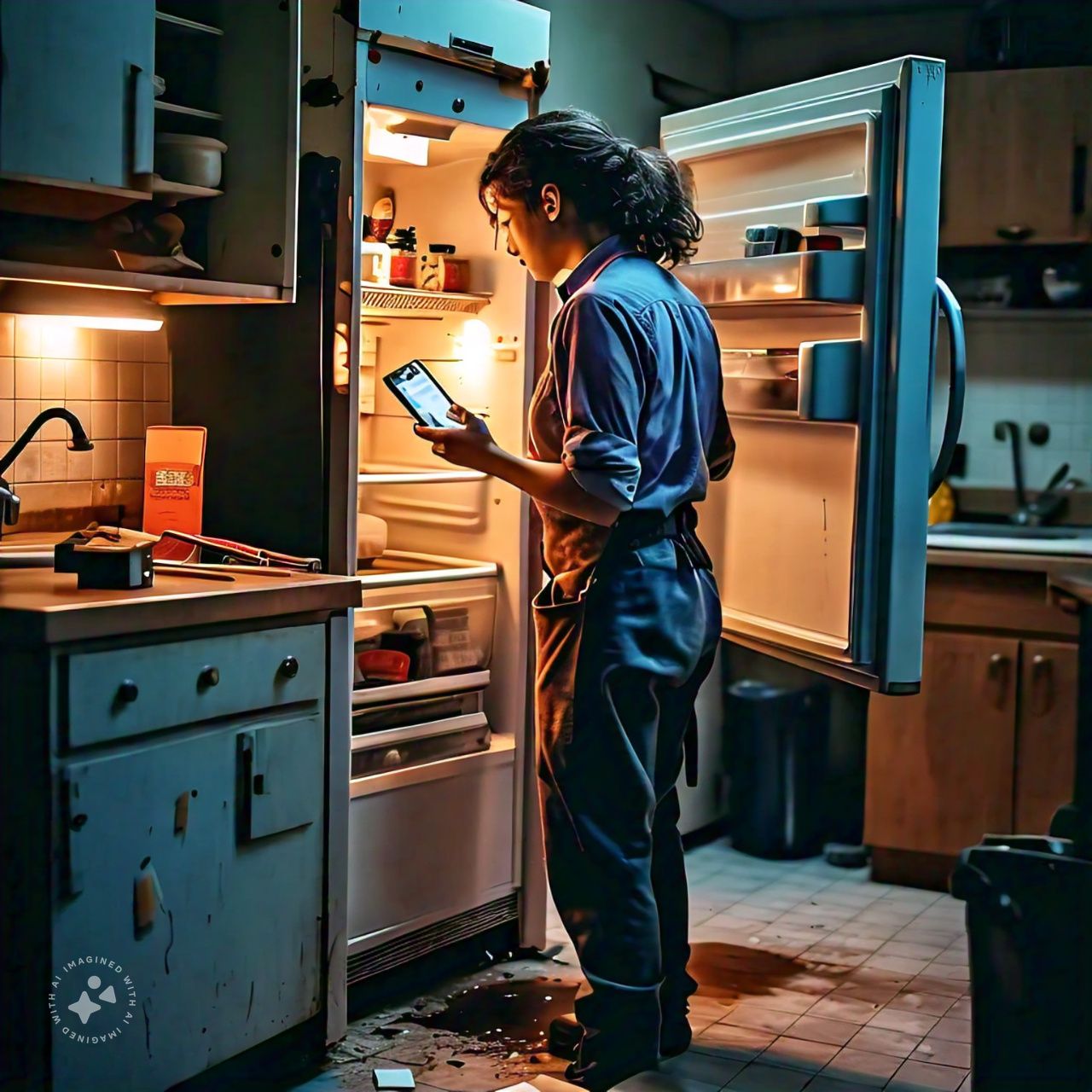A refrigerator breakdown is stressful, especially when it’s sudden. Food spoilage and unexpected repairs can quickly add up, but knowing what to do when your fridge stops working can save time and money. Here’s a step-by-step guide to help you troubleshoot, perform quick fixes, and decide when to call a professional for emergency repair.
Check for Power Issues
- Inspect the Power Cord: Start by making sure the fridge is plugged in properly. Sometimes a simple bump can loosen the plug or disconnect it altogether.
- Check the Circuit Breaker: If the fridge is plugged in but not running, check your home’s circuit breaker panel to see if a tripped breaker has cut power to the outlet.
- Test the Outlet: Plug another appliance into the same outlet to see if it’s working. If the outlet isn’t providing power, you may need to contact an electrician.
- Quick Fix: If the fridge still isn’t receiving power, try resetting the circuit breaker. If that doesn’t work, you might need to call a professional expert in refrigerator repair in Long Island to address the electrical issue.
Ensure Proper Temperature Settings
- Check the Thermostat Settings: Sometimes the temperature controls can be accidentally adjusted. Make sure the fridge and freezer thermostats are set to the recommended temperatures (usually between 37°F and 40°F for the fridge and 0°F for the freezer).
- Allow Time for Temperature Adjustment: If you’ve adjusted the thermostat, wait 24 hours to see if the fridge cools back down.
- Quick Fix: Avoid setting the temperature too low, as this can overwork the compressor and cause other issues.
Inspect the Door Seals
- Check for Gaps or Cracks: Damaged door seals allow cold air to escape, forcing your fridge to work harder to maintain temperature, which can lead to failure. Run your hand along the door edges to feel for cold air leaking out.
- Clean the Door Seals: Dirt, food particles, or grease can prevent a proper seal. Wipe the seals down with a damp cloth and mild soap to ensure they close tightly.
- Quick Fix: If you find a loose or damaged door seal, replacing it can improve efficiency and may restore the fridge’s cooling ability.
Listen for Strange Noises
- Identify the Sound Source: If your fridge is making strange noises (humming, clicking, or buzzing), listen closely to locate the sound. Often, noises can come from the compressor, fan, or condenser.
- Quick Fix: If you’re comfortable doing so, try tightening any loose parts. If the noise persists, it’s best to contact a repair technician.
Clean the Condenser Coils
- Locate the Coils: The condenser coils, typically located on the back or bottom of the fridge, are responsible for dissipating heat. If they’re dirty, the fridge has to work harder, which can lead to failure.
- Vacuum and Brush the Coils: Use a vacuum cleaner or coil brush to remove dust, pet hair, and debris from the coils. Cleaning them once every 6–12 months helps keep the fridge running efficiently.
- Quick Fix: Cleaning the coils can sometimes restore cooling and help prevent further issues. Unplug the fridge before cleaning for safety.
Check the Evaporator Fan
- Listen for Fan Noise: The evaporator fan circulates cold air throughout the fridge and freezer. If it’s not working, the fridge may stop cooling.
- Inspect for Ice Build-Up: Sometimes, ice can form around the fan blades, causing them to jam and stop spinning. Check the fan area (often located behind a panel in the freezer) and clear away any visible ice.
- Quick Fix: Defrost the freezer if you see ice build-up. Turn off the fridge and open the freezer door for a few hours to allow the ice to melt. Once thawed, turn the fridge back on to see if cooling resumes.
Conclusion
A sudden refrigerator failure can be a major inconvenience, but knowing how to troubleshoot and manage the issue can save you time, money, and stress. By following these steps—checking power, adjusting settings, and inspecting key components—you may be able to resolve minor issues yourself. For more complex problems, don’t hesitate to call a professional to get your fridge back up and running. With regular maintenance, you can help prevent future breakdowns and ensure your refrigerator stays reliable for years to come.
FAQs
How long can food last in a broken refrigerator?
Food in a fridge can generally stay safe for up to 4 hours if the doors remain closed, while frozen items in the freezer can last 24–48 hours. Use a thermometer to monitor food temperature.
Why is my refrigerator making a buzzing noise?
Check for any obstructions around the fan and consider calling a technician if the noise persists.
How often should I clean the condenser coils?
Clean the condenser coils every 6–12 months to prevent dust and dirt from causing your fridge to overheat and stop working efficiently.
